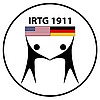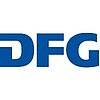A4 (2013 - 2016) – Impact of antigen-specific sialylated anti-inflammatory IgG antibodies on peanut- induced asthma and food allergy
Alexandra successfully defended her thesis in February 2017!
Publications:
Epp A, Sullivan KC, Herr AB, Strait RT. Immunoglobulin Glycosylation Effects in Allergy and Immunity. Curr Allergy Asthma Rep. 2016 Nov;16(11):79. Review. PubMed PMID: 27796794
Project:
Food allergy to peanuts is an important cause of morbidity and mortality. However, allergy to peanuts has no specific treatment. In the context of other allergies, successful allergen-specific immunotherapy (SIT; hyposensitization) is associated with the development of allergen-specific IgG4 serum Abs. One explanation for this effect is that allergen-specific IgG4 masks the allergen to inhibit its binding to IgE on MCs. Recently, we found that SIT against birch pollen induces Bet v 1-specific galactosylated and sialylated anti-inflammatory IgGs suggesting that the Fc glycosylation pattern also determines the pro- or anti-inflammatory effector function of IgG Abs in allergy. Accordingly, low galactosylated and sialylated IgG autoAbs are associated with the development of disease in rheumatoid arthritis patients whereas the sialylated IgG subfraction of IVIG, i.e. pooled serum IgG of healthy people used in high amounts (2g/kg), has an anti-inflammatory effect. Additionally, we have shown that relatively low quantities (2 mg/kg) of monoclonal, antigen (Ag)- specific galactosylated and sialylated murine IgG1 (the analog of human IgG4) induce Ag- specific inhibition of inflammatory immune responses. However, it is unknown whether galactosylated and sialylated IgGs specific for peanut allergens can inhibit peanut-induced asthma and food allergy.
Aims:
- Investigate whether galactosylated and sialylated anti-peanut murine IgG1 mAbs can suppress peanut-induced allergic airway disease and/or food allergy.
- Determine the dependence of these suppressive effects on IgG1 galactosylation and/or sialylation.
- Define the target cells of the anti-inflammatory effects of galactosylated and sialylated IgG1 Abs in our allergic airway disease and food allergy models.






